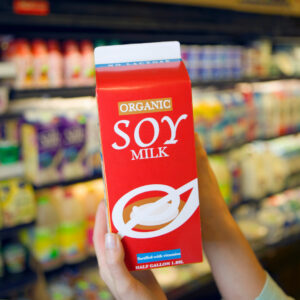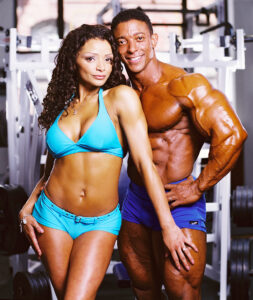
The Strength Sensei on Soy
What the Strength Sensei really thought about this popular bean
Charles R. Poliquin once said that “soy is for dorks, losers, and lawyers.” In other words, he was not a fan.
The Strength Sensei said that modern soy products, especially soy milk, are often loaded with sugar. He says soy products may contain anti-nutrients such as phytates (believed to lower testosterone and cause neurological problems), can lower sperm count, and may contain toxins associated with brain shrinkage and thyroid dysfunction.
One study he cited to support his claims about sperm count was headed by Jorge E. Chavarro, a research fellow at the department of nutrition at the Harvard School of Public Health. The study involved 99 men who visited fertility clinics between 2000-2006. The subjects were asked about their intake of soy-based products over the past three months, including tofu, soy milk, soy sausages, and energy bars. Chavarro and his colleagues concluded, “These data suggest that higher intake of soy foods and soy isoflavones is associated with lower sperm concentration.” (Jorge E. Chavarro, Thomas L. Toth, Sonita M. Sadio, and Russ Hauser. “Soy food and isoflavone intake in relation to semen quality parameters among men from an infertility clinic.” Human Reproduction, July 24, 2008)
 For optimal health, males and females should avoid soy products. (Miloš Šarčev photo)
For optimal health, males and females should avoid soy products. (Miloš Šarčev photo)
The Strength Sensei had many other issues with soy. He said soy is one of the most-sprayed crops and is often exposed to aluminum when processed. One of his biggest concerns was infant formulas containing soy.
Soy-based infant formulas were often recommended for infants allergic to cow’s milk. However, those same infants are often allergic to soy. The Strength Sensei said soy-based infant formulas are linked to attention deficit disorder due to their high manganese content, which is linked to neurotoxicity.
One of the Strength Sensei’s references to support his dislike of soy is The Whole Soy Story (New Trends Publishing, 2005) by board-certified nutritionist Kaayla T. Daniel, Ph.D., CCN. The Whole Soy Story is heavily referenced, and the hardback edition is 457 pages. Dr. Daniel earned the nickname “The Naughty Nutritionist” as she “tells the truth that’s too hot to handle.” The book is divided into the following seven parts:
- A Short History of Soy
- Types of Soy
- Macronutrients in Soy
- Antinutrients in Soybeans
- Heavy Metals
- Soy Allergens: Shock of the New
- Soy Estrogens: Hormone Havoc
If you still have reservations about eliminating soy from your diet, pick up a copy of The Whole Soy Story and learn why soy has become so popular and how its consumption can have numerous detrimental effects on your health. After reading it, you’ll understand why the Strength Sensei’s short answer for anyone asking him about soy products was, “Soy is for dorks!”
The economics of worldwide food production suggests that soy products are here to stay. However, the Strength Sensei says that the preponderance of research confirmed his belief that optimal health requires avoiding soy products. (TSS)
